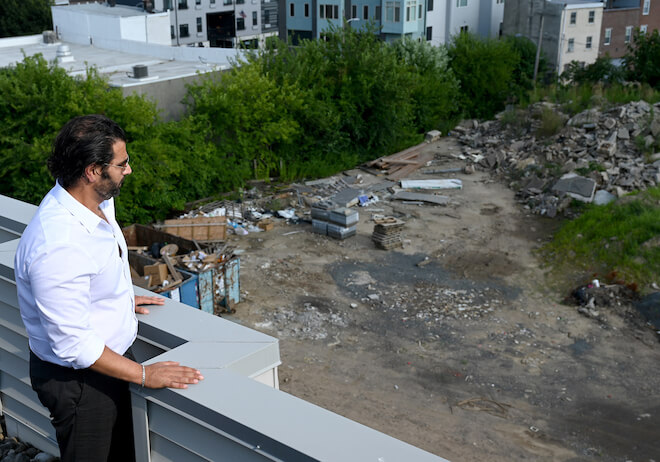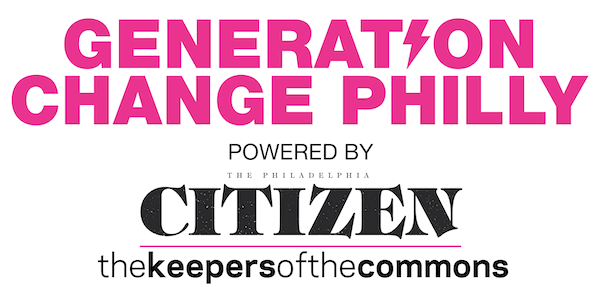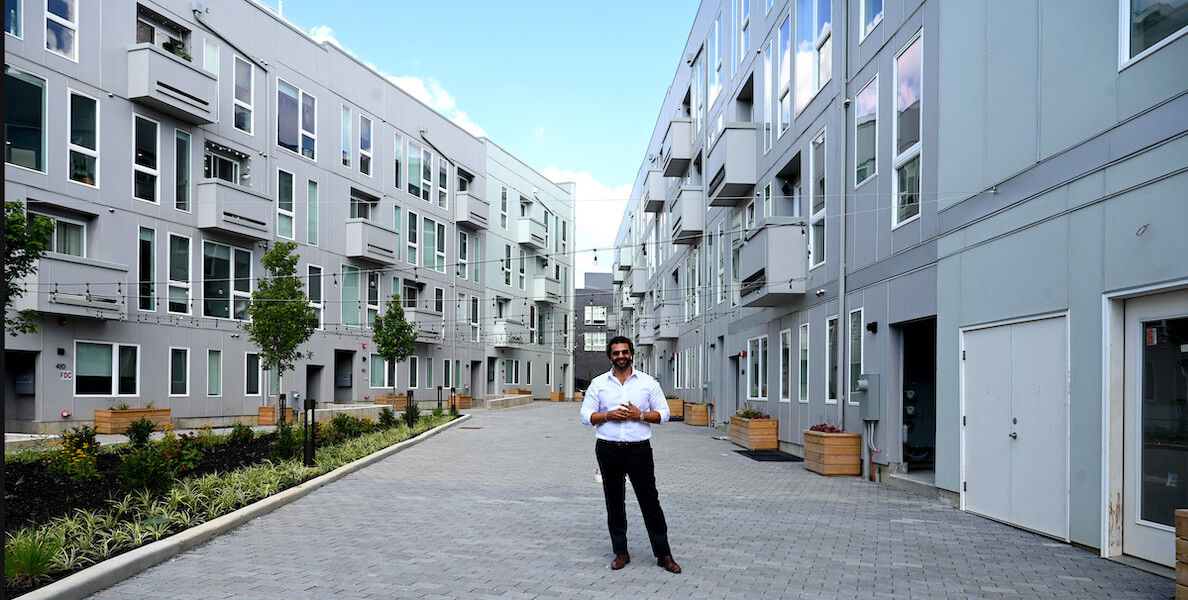There’s no denying that Philly has an affordable housing problem.
Between 2008 and 2016, Philly lost 13,000 lower-cost housing units, per data from the City’s Housing Action Plan. The city’s recent spate of construction and development has largely left out low-income residents. According to the report, as affordable housing — defined as costing no more than 30 percent of a resident’s income — declined, 6,000 higher-end units were built over the same period.
In Philly, the affordable housing crisis is worsened not just by a dearth of stock but also by median costs: More than half of the city’s renters and about 40 percent of residents as a whole spend more than 30 percent on housing costs.
In the midst of this crisis, Mohamed “Mo” Rushdy has emerged as an unlikely hero. The Egypt-born, former Kuwait Olympic Stadium engineer-turned Toll Brothers wunderkind began building workforce housing — homes priced for middle-income citizens — when he co-founded the real estate development firm Riverwards Group with Lawrence “Larry” McKnight in 2009.
Now, he’s turned his attention to the city’s affordable housing crisis as both the vice president of the Building Industry Association of Philadelphia, and chair of the board of directors for the newly created Philadelphia Accelerator Fund (PAF), a public-private partnership formed to provide flexible loans to Black and Brown developers so that they can build affordable housing.
Over the next five years, PAF plans to raise more than $100 million with the intention of constructing 6,000 affordable housing units. Currently, the fund is trying to raise between $10 to $15 million by the end of the year, with the goal of giving their first loans out in early 2023.
“We have a city that sits on a wealth of vacant public land of mostly infill lots that can get two-story, single family, three-bedroom, two-bathroom homes with backyards on them,” says Rushdy.
“My vision is getting 10,000 families in single-family, two-story, three-bedroom, two-bathroom homes over the next eight years costing $600 to $1,300 per month in total monthly housing cost for a single family — an opportunity that would create $200,000 to $250,000 in wealth for each of these 10,000 families,” Rushdy says.
For his work in building better places for all Philadelphians to live and building pathways for under-represented developers to thrive, Rushdy is a Generation Change Philly fellow.
From Cairo to GradHo
Growing up in Egypt, Rushdy spent his early years accompanying his father, an engineer, to job sites. He and his brother would sometimes wake up as early as 5 a.m. to tag along with their dad as he worked on homes and bridges. Watching as his father worked on these projects and thinking about how they were constructed just felt natural to him. “I’d spend a whole day there,” he recalls.
Though real estate development had always been part of his life, Rushdy dreamt of being a doctor and applied and was accepted to medical schools after graduating high school at age 15. (In Egypt, students attend seven years of medical school, rather than going to college first). He also put in an application to the American University of Cairo engineering school. When he got into both, he decided to attend both. But as he sat through his medical school classes, all he could think about was engineering. “After the first couple of weeks, I was like, I think I really want to be there, not here,” he says.
He began skipping medical school classes. By the end of the first year, he officially chose engineering.
Upon graduation, Rushdy worked on a number of infrastructure, cement plant and stadium building projects in the Middle East. One job: Kuwait’s first Olympic Stadium. In 2004, he moved to San Francisco to get his start in residential development. He joined luxury home developer Toll Brothers — best known for their suburban McMansion developments — enrolling in their one-year assistant project manager-in-training program, the first in the company’s series of rungs up the corporate ladder.
But Rushdy showed so much promise, Toll Bros pulled him out of training after three months and had him take on a 128-unit single-family development in the East Bay. Within 18 months, he was a senior project manager.
Shortly after his promotion, Rushy and his wife, a foreign-trained dentist, moved to Philadelphia so she could attend a program at the University of Pennsylvania that would allow her to practice in the U.S. Continuing with Toll Brothers, he led phase one of the Naval Square condo development in Graduate Hospital — and cemented his place in the local building community.
“That was an early win, coming here as an immigrant and within a couple years moving up in the company,” he says.
Like many talented, young professionals, Rushdy found his skills were in demand. In 2007 Westrum Development Company recruited him as a general manager. His next big project became The Arbors at Eagle Pointe, a 400-home, active adult community in far Northeast Philly. When the recession hit in 2008, Westrum placed Rushdy in charge of all Philadelphia developments. In 2011, they asked him to head up acquisitions.
Reviving Fishtown
Though he remained gainfully employed at Westrum, Rushdy began to look into other opportunities locally. He’d been talking with McKnight, then a colleague and friend at Westrum, about some small, infill projects McKnight had been building in Fishtown and Northern Liberties, buying a vacant lot or abandoned house, and building something new.
Philadelphia’s seemingly endless stock of empty lots frustrated Rushdy. These vacant spaces felt like such a waste, when so many local families needed good homes. “We have a city that sits on a wealth of vacant public land of mostly infill lots that can get two-story, single family, three-bedroom, two-bathroom homes with backyards on them,” he says.

For McKnight, the issue was personal as well as professional. He’d grown up in a two-story Fishtown rowhome, raised by parents who were a police officer and a teacher. He’d watched as the working-class neighborhood struggled in the ’80s and ’90s, when it had more than 1,100 vacant lots and was overrun with drug-related crime.
“He had seen these neighborhoods when they weren’t on the decline that they have gone through over decades,” Rushdy says.
This was in 2009, before Fishtown was what it is today — a hip young neighborhood with bars, restaurants, coffee shops and retail galore. But Rushdy and McKnight saw the potential there. It was accessible via public transit, with commercial corridors along Girard, Frankford Avenue and Front Street, and neighboring 2nd Street in Northern Liberties.
“We knew we were onto something big, a future that holds true change in these neighborhoods,” Rushdy says.
But they also knew that they wanted to do things differently than other developers coming to the area. Both Rushdy and McKnight had worked on higher-end residential projects. Toll Brothers’ Naval Square, for example, is in Graduate Hospital, the city’s most gentrified neighborhood. They didn’t want to repeat that, to contribute to raising housing prices throughout the neighborhood.
“This area is unique in what it can offer to a person that wants to live in the city and, you know, doesn’t want to live in a $2,000-a-month, 600-square-feet studio,” Rushdy says.
So, they focused on building safe, fairly-priced housing for middle-income families making $60,000 a year, families like McKnight’s. This gave them a wide group of potential customers, which the pair believed would help sustain their company in the long term.
“People don’t care about the politics. They just want stable, clean and new housing in their neighborhoods,”says Rushdy.
“We have extreme discipline on who we are and want to approach what we want and what projects that we can do,” says Rushdy. “Getting bullish, overpaying for land and really raising prices — that’s just not us. We always joke and say, We’re not the ones that make the money. The ones that come right behind us are the ones that make money.”
While still at Westrum, the duo made their partnership official by launching Riverwards Group. They slowly scaled up McKnight’s sideline operation, purchasing an empty lot or distressed homes to build on. “We had managed 400-unit jobs, 800-unit jobs,” Rushdy says, “Getting a four- or five-unit job was pretty simple.”
Riverwards started out building five homes per year. By 2020, five had grown to 130. To date, Rushdy and McKnight have completed 519 houses, with over 1,000 more units in development. Their projects have expanded beyond Fishtown into East and South Kensington, Port Richmond, and beyond the Riverwards to Roxborough and Francisville.
Building for better
Though he had found success building infills and larger developments in the Riverwards, Rushdy remained frustrated with the state of affordable housing in the city (again, defined as a residence that costs its occupant 30 percent or less of their income).
The process of getting vacant land from the City’s Land Bank was cumbersome. Zoning policies had created what Rushdy calls “development deserts” throughout Philly.
“We do indeed have a crisis when it comes to affordable housing. It’s a solvable one though. It’s largely manufactured due to bad policy. Affordable housing got politicized in our city,” he says. But, “People don’t care about the politics. They just want stable, clean and new housing in their neighborhoods.”
So Rushdy did what he does, what has been in his genes since he first started accompanying his father to construction sites: He started building.
Riverwards Group sold its first workforce-priced development in 2017 at the corner of Marshall and Poplar streets in East Poplar: 13 three-story rowhomes, at $229,900 each, went to families who earned no more than 120 percent of the area’s median income. They followed up with a similar development of 16 three-bedroom homes in Francisville. A development of 15 homes is currently in the works in Port Richmond.
And, he started lobbying the city. Rushdy’s experience creating workforce and affordable housing brought him to the attention of the Building Industry Association of Philadelphia (BIA), where he’s currently serving as vice president. Rushdy and BIA current president Gary Jonas worked with a housing committee that helped advise City Council on the 2018 Housing Action Plan. “We’re for-profit guys who understand the numbers and know how we can resolve issues for the City, especially on the affordable housing scale,” Rushdy says.
Introduced in 2018, the Housing Action Plan calls for building 3,650 new units each year at price points across the income spectrum. Mayor Kenney has pledged at least $53 million in affordable housing funding as part of the plan and supports legislation that would bring in an additional $18 million.
So Rushdy did what he does, what has been in his genes since he first started accompanying his father to construction sites: He started building.
Under Rushdy and Jonas, the BIA helped the City shepherd a new process for selling vacant, City-owned land to developers. Under the new system, both nonprofit and for-profit developers can submit proposals and be awarded vacant lots from the City’s Land Bank — provided the proposal turns 51 percent of the project into affordable units. These sort of proposals essentially trigger a noncompetitive sales process with the City, rather than waiting for the Land Bank to put a group of lots together and call for a RFP.
“That legislation allows companies to go in and say, Hey, listen, I like these 20 parcels and I’m gonna put 11 affordable housing because that’s over 50 percent and the other nine on market,” Rushdy says. “It’s very groundbreaking legislation.”
Soon after, Greg Heller, then executive director of the Philadelphia Redevelopment Authority, approached Rushdy to ask him to join the board of Philadelphia Accelerator Fund (PAF), a fund meant to help Black and Brown developers take advantage of the new, noncompetitive Land Bank sales process.
The PAF took its inspiration from the San Francisco Housing Accelerator Fund, which helps nonprofit affordable housing developers compete with market-rate developers by offering flexible loans to buy land. The Philly fund’s goals differ slightly, however. It hopes to provide flexible financing for affordable housing projects, with a focus on providing funds to Black and Brown developers who often face systemic barriers due to discriminatory lending practices among traditional banking institutions.
So far, the fund, seeded with about $11 million from the City, has raised an additional $10 million from Citizens Bank and Univest. As chair of the board of directors, Rushdy has been heavily involved, working with interim executive director Jojy Varghese to create an accessible online application for developers interested in applying for loans. Rushdy has not missed a single presentation from investors or lenders looking to be involved.
“Mo has been instrumental in advancing the goals of PAF through his vision, experience and expertise in the regional affordable housing environment,” Varghese says.
When the PAF were testing the loan application, Varghese had both Rushdy and a young developer submit projects. The goal was to create a system that would filter out applications from developers like Rushdy — experienced builders with easy access to capital.
Rushdy plans to continue working with the fund and to keep mentoring developers who are interested in building affordable housing in Philly. One of his mentees is currently working on an application for a PAF loan.
Varghese believes the vision is more than practicable. “This fund, in particular, isn’t going to be helping the people like Mo who are already established,” Varghese says. “This fund will be helping primarily Black and Brown developers get to the point of where Mo currently is.”
Correction: A previous version of this story misstated that Gary Jonas was a member of the Philadelphia Accelerator Fund.

The Philadelphia Citizen is partnering with the nonprofit Keepers of the Commons on the “Generation Change Philly” series to provide educational and networking opportunities to the city’s most dynamic change-makers.
![]() MORE ON HOUSING FROM THE CITIZEN
MORE ON HOUSING FROM THE CITIZEN




